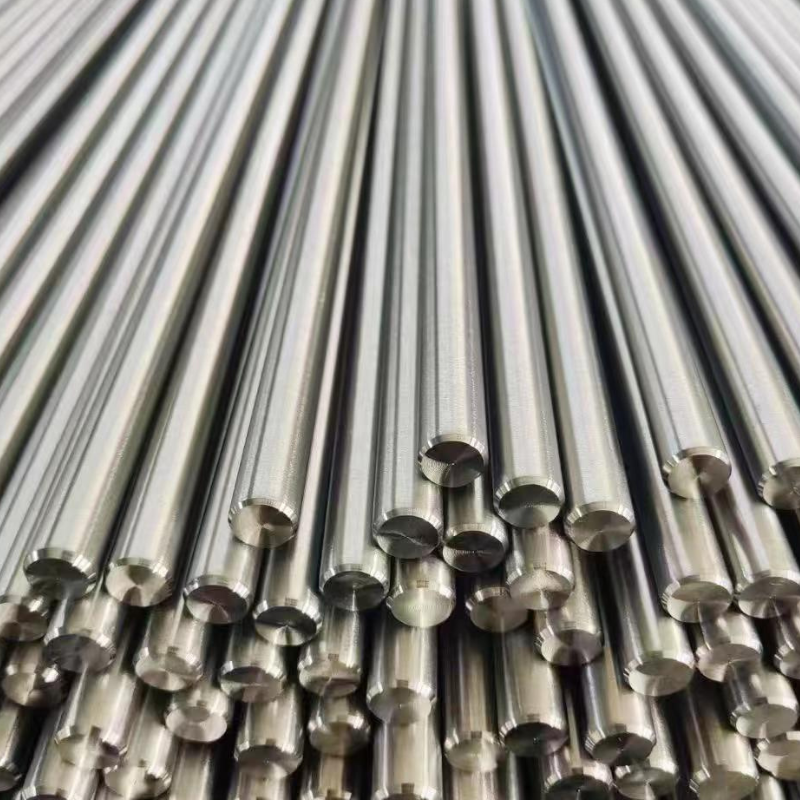What are 10 main properties of titanium?

Ten Properties of Titanium alloy as following:
1. Titanium targets can be used to manufacture films in a wide range of colors, including titanium gray, gunmetal gray, black, imitation gold, coffee, blue, and purple. The reason for this is that titanium targets can form different oxides or nitrides under different process conditions, thus exhibiting a variety of colors.
2. In addition, titanium has very good adhesion, not only to the metal substrate has excellent adhesion performance, for ceramic and glass substrate is also applicable. Therefore, titanium is often used as a backing material for films with poor adhesion. In addition, titanium can be used as a material for making film resistors or film capacitors, taking full advantage of its excellent electrical and mechanical properties.
3. Titanium has strong adsorption of reactive gases (such as CO, CO2, N2, O2 and water vapor above 650°C). The fresh Ti film evaporated on the mercury wall forms a highly adsorbent surface with excellent adsorption properties that chemically reacts with almost all gases except inert gases. This property has led to the widespread use of Ti in ultra-high vacuum pumping systems, such as in titanium sublimation pumps and sputtering ion pumps.
4. Titanium has excellent corrosion resistance. Although titanium is a very reactive metal with a low equilibrium potential and a tendency to corrode thermodynamically in media, it is actually stable in many media. Titanium is resistant to corrosion in oxidizing, neutral and weakly reducing media, this is because titanium and oxygen have a great affinity, in the air or oxygen-containing media, the surface of titanium will generate a layer of dense, strong adhesion and inert oxidized film to protect the titanium substrate from corrosion. Even due to mechanical wear and tear, titanium oxide film will quickly self-healing or regeneration, indicating that titanium has a strong passivation tendency. Below 315°C, the titanium oxide film always maintains this characteristic. Titanium has a metallic luster, ductility, density of 4.5 g / cm3, melting point of 1660 ± 10 ° C, boiling point of 3287 ° C, the valence of +2, +3 and +4, ionization energy of 6.82 eV. The main characteristics of titanium are low density, high mechanical strength and easy processing. The plasticity of titanium depends mainly on the purity, the higher the purity, the greater the plasticity. Titanium has good corrosion resistance, not affected by the atmosphere and seawater, and will not be corroded by hydrochloric acid below 7%, sulfuric acid below 5%, nitric acid, aqua regia or dilute alkali solution at room temperature; only hydrofluoric acid, concentrated hydrochloric acid and concentrated sulfuric acid can have an effect on it.
5. Titanium is "biophilic". In the human body, titanium can resist the corrosion of secretion and non-toxic, to any sterilization methods are adapted. Therefore, titanium is widely used in the manufacture of medical devices, such as artificial hip, knee, shoulder, rib joints, skulls, aortic valves, and skeletal fixation clips. When new muscle fibers are wrapped around these "titanium bones", the titanium bones can maintain normal body movement. Titanium is a non-magnetic metal and will not be magnetized in a large magnetic field. It is non-toxic and has good compatibility with human tissues and blood, so it is used by the medical profession.
6. Titanium has good heat resistance and low temperature resistance. New titanium alloys can be used for a long time at temperatures of 600°C or higher. Low-temperature titanium alloys represented by titanium alloys TA7 (Ti-5Al-2.5Sn), TC4 (Ti-6Al-4V) and Ti-2.5Zr-1.5Mo, etc., show an increase in strength with the decrease in temperature, but little change in plasticity. In the -196 to -253 ℃ low temperature, titanium alloys can still maintain good ductility and toughness, to avoid the metal cold embrittlement, is the manufacture of low-temperature containers and storage tanks and other equipment, the ideal material.
7. Titanium has strong anti-damping properties. After being subjected to mechanical or electrical vibration, titanium metal has the longest vibration decay time compared to steel and copper. This property of titanium can be utilized to manufacture tuning forks, vibrating elements for medical ultrasonic pulverizers and vibrating films for advanced audio speakers.
8. The tensile strength of titanium is close to its yield strength. This indicates that titanium has a high yield-strength ratio (tensile strength/yield strength), which suggests that titanium metal materials deform poorly plastically during forming. Due to the large ratio of yield limit to modulus of elasticity of titanium, titanium has a large rebound capacity during forming.
9. Titanium has good heat transfer properties. Although the thermal conductivity of titanium metal is lower than carbon steel and copper, but because of titanium's excellent corrosion resistance, titanium equipment wall thickness can be greatly reduced, and the titanium surface and the steam heat transfer method of drip condensation, reducing the thermal resistance. Titanium surface does not scale can also reduce the thermal resistance, so that the titanium heat transfer performance is significantly improved.
10. Titanium has a low modulus of elasticity. At room temperature, the modulus of elasticity of titanium is 106.4 GPa, 57% of steel.